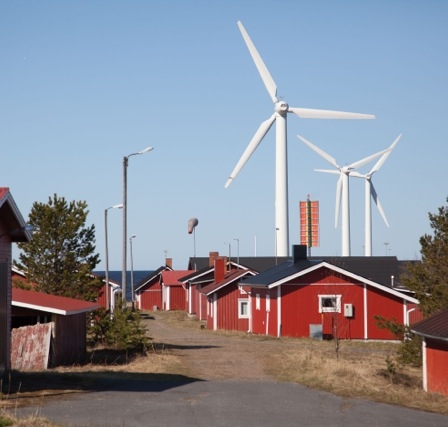As a concept, the energy transition (Energiewende) refers to Germany’s aim to change to a sustainable economy based on renewable energy production by 2050. The term is highly apt: following the Fukushima nuclear disaster, the German government took a snap decision to abandon nuclear energy by the end of 2022. Until then, although popular opinion had already turned against nuclear power, political decision makers had wanted to keep faith with this form of energy.
As a mega-project in social, political and energy technology terms, the energy transition is a fascinating phenomenon. Numerous challenges will be posed by its tight schedule. To replace nuclear energy, renewable energy production will have to be increased and electricity transmission networks must be rapidly developed. At the same time, fossil fuel use will be reduced. This sounds like anything but a simple equation.
In Finland, people often wonder why the Germans have opted for a project of this kind – out of craziness, courage or both? Fascinatingly, the discussion in Germany has turned away from the actual need for such an energy transition to its means of implementation. Most ordinary Germans – as well as those in industry, civic organisations and political parties – have acknowledged and accepted the need. However, views differ on how and to what schedule progress will be made, and who will pay. Participants in the public discussion also bemoan the slow pace and costliness of the transition, or of related local construction projects.
The Finnish public discussion around Germany’s energy reforms has given a high profile to these critical comments. On the other hand, little mention has been made of the benefits, successful local trials and efforts to find ways of making the energy transition succeed.
The energy transition is a source of fascination, including for those outside the energy sector. Through its project on self-produced energy Sitra has tried to enable people to generate their own renewable energy. We are interested in making comparisons and learning all about the energy transition and its effects on the economy and people.
In a series of blogs over the coming months, we will try to answer interesting questions and provide topical overviews of Germany’s progress in its energy transition. The blogs will present the back story on the energy transition and slants on its progress, in a fair-minded, participative and transparent way. We hope that the blog series will contribute to the Finnish discussion of the German reforms, and of domestic climate and energy policy.
You will find articles belonging to the Energiewende blog series in the ‘We recommend’ section on the right hand-side, or via Search.
Stay tuned!







Recommended